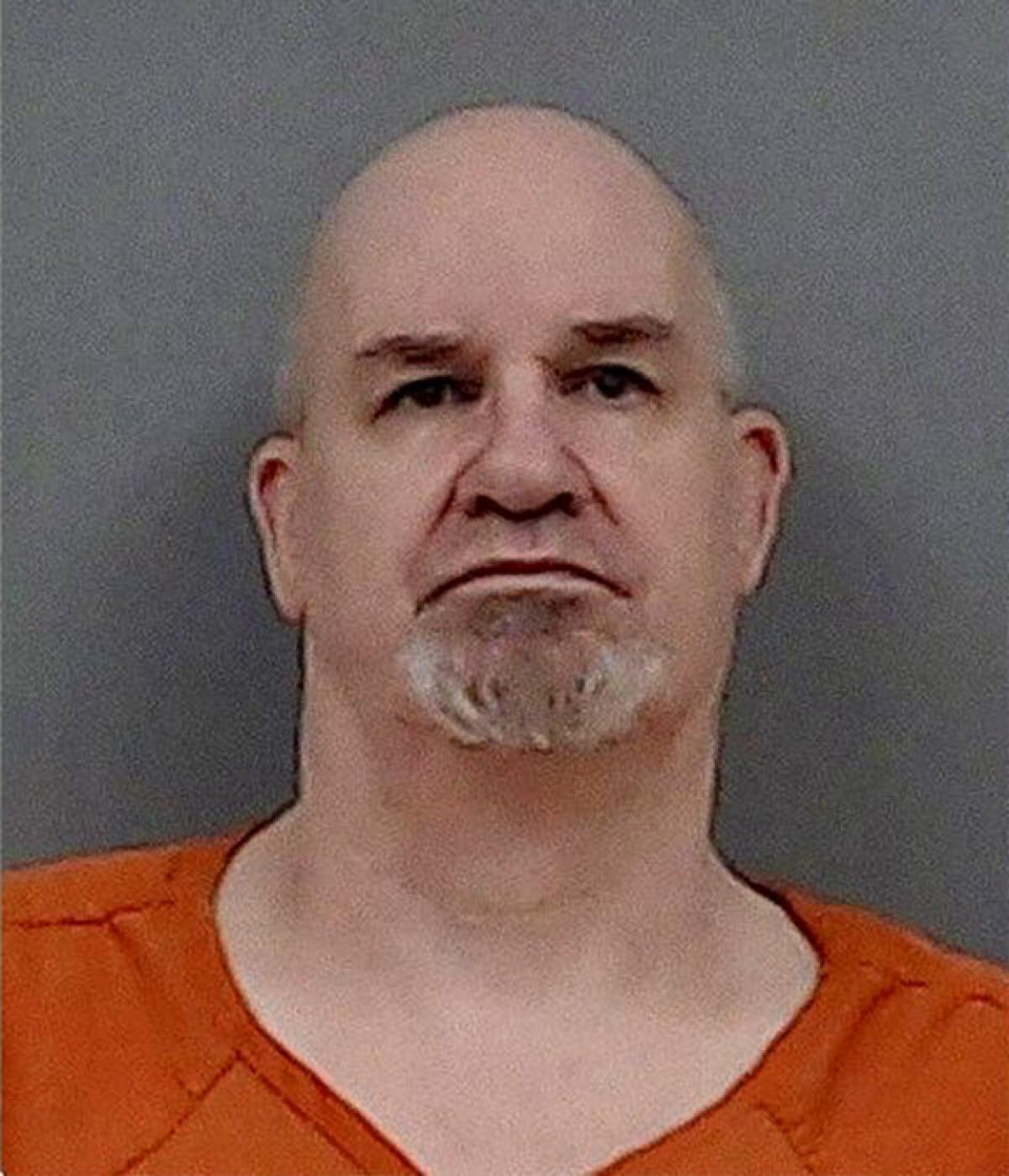Judge vacates conviction of man whose identity was stolen in ‘Kafkaesque’ case

A Los Angeles Superior Court judge on Thursday vacated the conviction of William Woods, who spent nearly two years locked up — including a stint in a psychiatric hospital — for a crime he did not commit.
Woods had pleaded no contest to identity theft and false impersonation in 2019, despite trying to convince authorities he was the real Woods and someone else had stolen his identity.
Last week, the man who stole Woods’ identity — Matthew David Keirans — pleaded guilty to making a false statement to a National Credit Union Administration-insured institution and aggravated identity theft.
The Los Angeles County district attorney’s office then filed a motion to vacate Woods’ conviction.
In a hearing that lasted less than 15 minutes, Judge William C. Ryan said he was “more than happy” to sign the order vacating the conviction, calling the case “astounding.”
“The word that comes to mind is Kafkaesque, out of the novels of Franz Kafka,” Ryan said.
Woods, who now lives in El Paso, was not present in court but called in to the hearing.
“I’m happy, because I knew I was innocent anyway,” Woods said by phone afterward. “I knew I was innocent.”
William Woods tells The Times he’s considering suing the city of L.A. for his years behind bars and in a psychiatric hospital, accused of stealing his own identity.
In a statement Thursday, Dist. Atty. George Gascón expressed his “sincerest apologies” to Woods for the “unfathomable hardship he has endured.”
Not only was Woods a victim of identity theft for decades, Gascón continued, “but he had to endure wrongful incarceration both in the county jail and in a state hospital as a result of being arrested and charged with the crime for which he was the actual victim.”
Keirans admitted in a plea agreement to stealing Woods’ identity in 1988, when the two worked together at a hot dog cart business in Albuquerque. It’s unclear what motivated him to do so.
In his plea agreement, Keirans said he’d run away from home at 16 and traveled across the country. He said he’d stolen a car in San Francisco and been arrested in Oregon but never appeared in court.
After 1988, there was no record of Keirans ever using his own name, date of birth or Social Security number, according to his plea agreement.
Instead, he obtained employment, insurance, a Social Security number, driver’s licenses, titles, loans and credit using Woods’ identity. He even paid taxes under his former co-worker’s name.

Keirans’ fiction extended to his personal life. He married in 1994. The couple had a child in Oregon who bore Woods’ last name. To keep his charade going, Keirans in 2012 obtained Woods’ certified birth certificate from Kentucky, using information from Ancestry.com, according to prosecutors.
He later got a job — as Woods — working as a systems architect at the University of Iowa Hospitals and Clinics. Keirans provided the hospital with fake identification documents, including a fictitious I-9 form, Social Security number and date of birth, according to the plea agreement.
Keirans worked remotely from his home in Wisconsin and earned at least $700,000 from the hospital over a 10-year period. Between 2016 and 2022, he obtained vehicle and personal loans totaling more than $200,000 from credit unions under Woods’ name.
On Aug. 20, 2019, Woods, whom prosecutors described as homeless, went to an L.A. branch of a national bank and told the assistant branch manager that he’d recently discovered someone was using his credit and had accumulated a large amount of debt, according to Keirans’ plea agreement. Woods requested his account numbers so he could close the accounts.
Woods gave the assistant branch manager his Social Security card and his California ID. His name and Social Security number matched those associated with bank accounts Keirans had opened. Because of the large amounts of money in the accounts, the bank employee asked Woods a series of security questions, which he was unable to answer correctly, according to court records.
The bank employee then called the number tied to the bank accounts. Keirans answered. He told her no one in California should have access to his bank accounts. He correctly answered the security questions. The assistant branch manager called the police.
LAPD officers spoke with Keirans on the phone, and he later faxed them a copy of a Social Security card, a Wisconsin driver’s license and the Kentucky birth certificate. The officers arrested Woods for unauthorized use of personal information.
On Oct. 31, 2019, the district attorney’s office charged Woods with two felonies, in the name of “Matthew Kierans” — misspelling the real identity thief’s last name. That day in court, according to court reporter transcripts obtained by The Times, Woods told the judge, “I’m not Matthew Keirans at all.” It is unclear how Woods was linked to the identity thief’s name.
The prosecutor’s office said the case had been filed under a previous administration based on police reports as well as body-worn camera video. As to why Woods was booked under the name “Kierans,” a spokesperson for the office said that was “unclear”; the LAPD did not specify how that came to happen.
In February 2020, the judge found Woods was not mentally competent to stand trial and ordered him to a psychiatric hospital. It also was ordered that he receive psychotropic medication.
A little more than eight months later, after numerous delays because of bed space and COVID-19 issues, Woods was transported to Patton State Hospital, according to a minute order from the court.
“People didn’t listen, and they didn’t know I was who I said I was,” Woods said. “They were painting it like I was crazy.”
Woods was convicted of felony charges in March 2021. He pleaded “no contest” and was sentenced to two years of imprisonment in the county jail, although the court credited him for the 428 days he spent in jail and the 147 days he spent in the hospital.
He was ordered to stop using the name William Woods.
Woods said he pleaded out so the case against him would be dismissed
The case later unraveled when Woods learned where Keirans worked and contacted the Iowa City hospital’s security department. They referred his complaint to the University of Iowa Police Department.
Detective Ian Mallory obtained DNA from Woods and his father, listed on the Kentucky birth certificate. The test proved that Woods was his father’s son.
More to Read
Sign up for Essential California
The most important California stories and recommendations in your inbox every morning.
You may occasionally receive promotional content from the Los Angeles Times.












